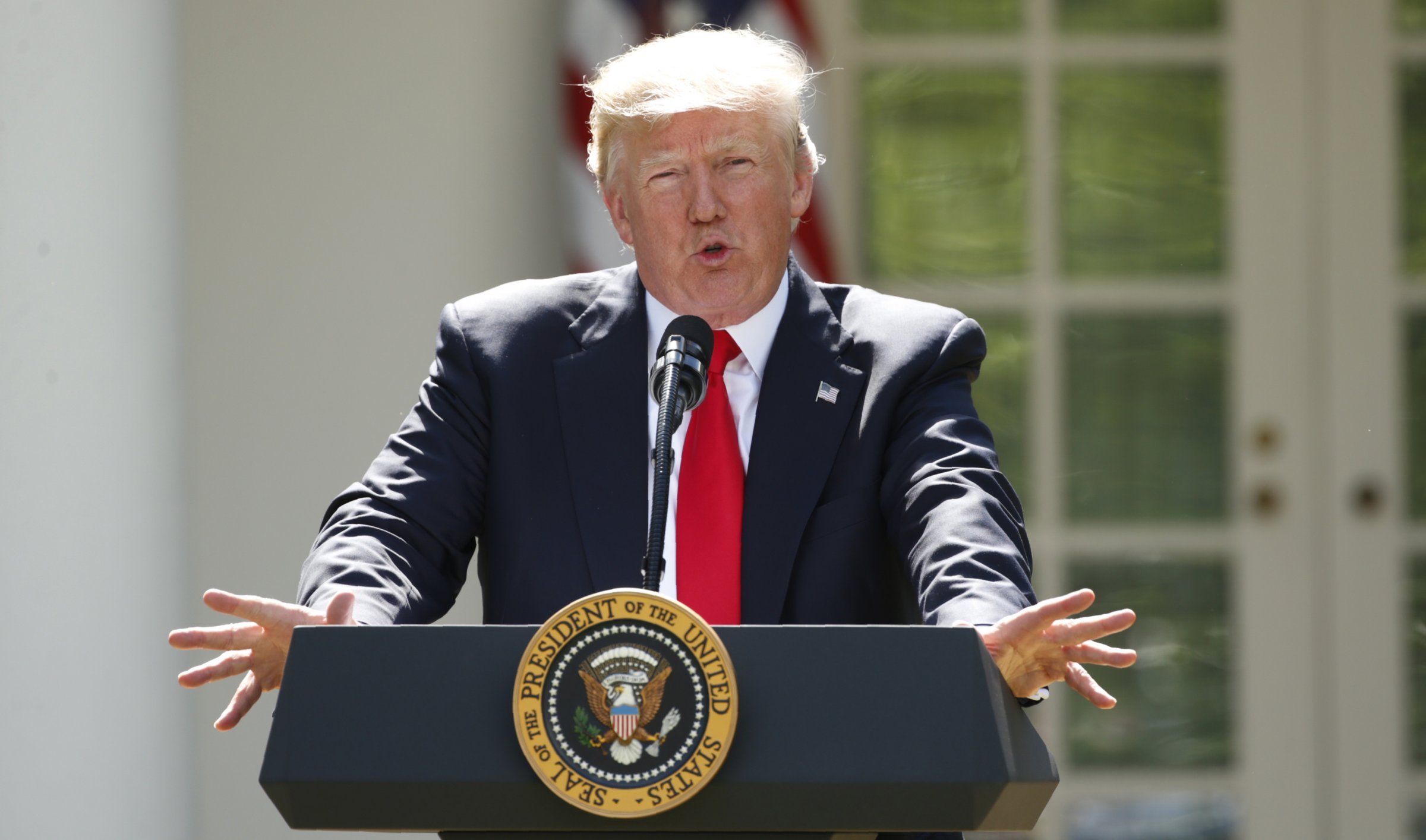 President Donald Trump announces his decision that the United States will withdraw from the Paris Climate Agreement on June 1, 2017.REUTERS/Kevin Lamarque
President Donald Trump announces his decision that the United States will withdraw from the Paris Climate Agreement on June 1, 2017.REUTERS/Kevin Lamarque
When President Donald Trump announced he was withdrawing the United States from the Paris climate agreement on Thursday, environmental, industry, and policy experts reacted not with dejected fear, but with optimism that bordered on defiant.
The overwhelming conclusion seemed to be that Trump’s decision placating his base was a dangerous diplomatic move, but it wouldn’t be the end of the world.
Climate progress is already underway, and American cities, states, companies, and citizens could pick up the slack.
Columbia University climate scientist Peter deMenocal said he’s “devastated,” but not pessimistic.
“We just shot ourselves in the foot on this. We’re basically passing the baton to every other country to innovate and lead. This is the biggest entrepreneurial opportunity of many generations. This is the next Industrial Revolution,” deMenocal told Business Insider. “We could be witnessing, I won’t say the end of American innovation, but certainly a loss of it.”
DeMenocal said he’s worried the US withdrawal could lead to a domino effect of other countries exiting, a fear many other experts expressed, as well. But Elliot Diringer, the executive vice president of the Center for Climate and Energy Solutions, a nonpartisan climate-focused think tank, said he was was confident most will remain committed to climate action.
What has a higher likelihood of fracturing, Diringer said, are US diplomatic relations, since other countries could think the US has “turned its back on the international community.” But that’s where industry can step up, he said.
“On the one hand, I don’t want to minimize the impact of US withdrawal; it’s a big deal,” Diringer told Business Insider. “At the same time, there’s a risk of overstating it, as well, because of all the momentum, which is reflected in the fact that you have so many CEOs signing full page ads, and calling into the White House.”
Today, the world only gets around 11% of its energy from renewables — and companies see that as a huge untapped market.
“Big business, big finance gets it. I’d be much more pessimistic if we still had to fight that fight, and we don’t — they got it a long time ago,” deMenocal said. “I think the fact that the current administration does or doesn’t get it, obviously it’s bad, but it’s not the most relevant fact.”
Dozens of CEOs spoke out against Trump leaving the Paris agreement before and after he announced his decision Thursday. Many expressed their commitment to leading the way on climate action now that the federal government is avoiding it.
Lloyd Blankfein, CEO of Goldman Sachs, tweeted for the first time following Trump’s announcement. “Today’s decision is a setback for the environment and for the US’s leadership position in the world,” he wrote.
World: the Empire State stands with you. New York shines green for our planet, our health and our children’s future. #ParisAgreementpic.twitter.com/Ubw7WSPgu0
— Andrew Cuomo (@NYGovCuomo) June 2, 2017
With over 60 US mayors and a dozen governors supporting the Paris agreement, many cities and states are threatening to maintain the US’s commitment to the accord even as Trump is pulling the nation out of it.
“This is an insane move by this president; the world depends on a sustainable future,” Gov. Jerry Brown of California said after Trump’s press conference. “It’s tragic, but out of that tragedy, I believe the rest of the world will mobilize, will galvanize our efforts.”
The US has reduced its emissions over the last few years while increasing its GDP, as clean energy like wind and solar power have plummeted in price. For the first time in 2015, global investments in renewables surpassed those in carbon-emitting fossil fuels like oil, gas, and coal.
“The United States is already on a trajectory for meeting our Paris target, with rapid growth in natural gas and renewable power generation as well as energy efficiency leading the way,” former Energy Secretary Ernest J. Moniz wrote in an op-ed in the Boston Globe after Trump’s announcement.
“The principal solution to climate-change challenges lies with a transformation to an all-of-the-above low-carbon energy future. There is no going back.”













